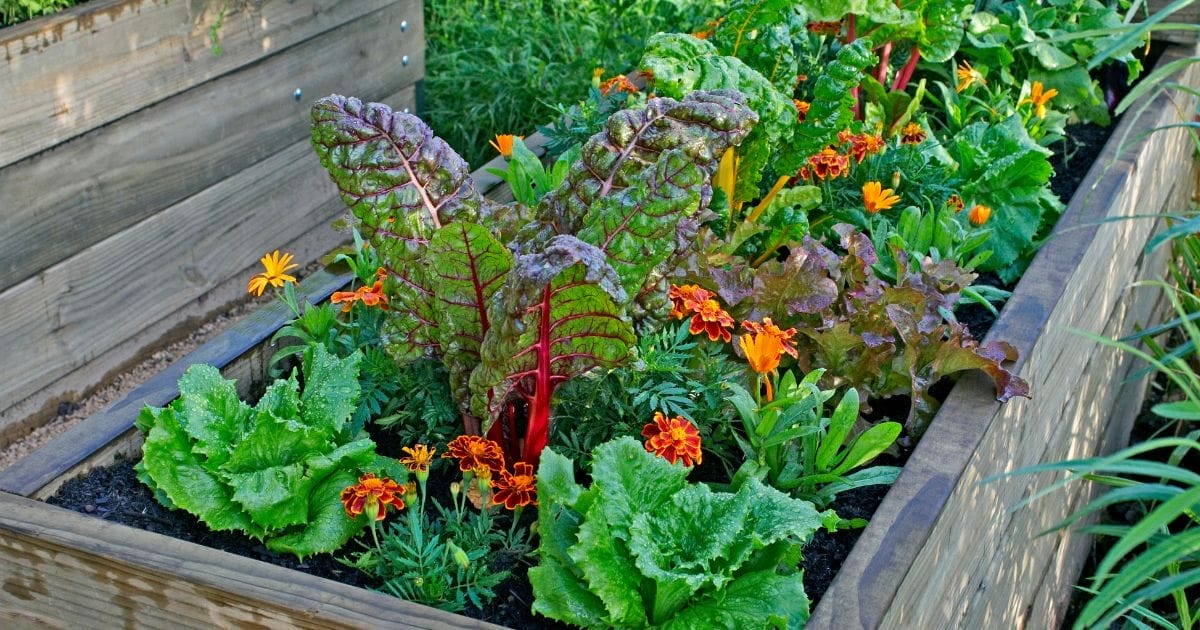Spring Garden Inspiration for New Hampshire Homes
From cute containers to lush landscapes: Hints for flowers, herbs, and produce
Spring is the season of rebirth and new beginnings. Whether or not you have a green thumb, gardening is one of the best ways to watch new life grow. Of course in New Hampshire, we have a relatively short season to enjoy a garden’s bounty, and planning around the weather is important. Keep reading for ideas that will maximize your chances of success.
Know before you grow: New Hampshire’s hardiness zone
The country is divided into sections that are classified by USDA Hardiness Zones. Most of New Hampshire falls into Zones 4b to 6a, which means the last frost date where you live might happen anywhere between late April and late May, depending on your zip code. Being familiar with your specific zone will help you avoid the heartbreak of planting too early and losing all your hard work and effort because of a cold snap.
Raise your gardening game with raised beds
The soil in many New Hampshire yards is often rocky and doesn’t have enough nutrients to properly feed gardens in the ground. Raised beds can be a great solution because they are not only aesthetically pleasing but they give you more control over the soil and other factors. Like the name implies, they are garden beds that sit up above the ground. Raised beds can be as small or as large as you wish for what you intend to plant. The most common are made out of wood, which are easy to build and popular for their natural look. For material that’s durable and resistant to rot, use hemlock or cedar.
Raised garden beds provide better drainage, are less likely to be invaded by weeds, and the frame of the bed prevents soil erosion. There are no worries about foot traffic trampling your plants and compacting the soil. A lot of gardeners also appreciate the height of raised beds because they are easier on the knees while you tend to your plants and don’t require much bending.
Container gardening: Small space, big reward
Another alternative to gardening in the ground are containers. The great thing about planting in various pots, barrels, baskets, or anything else that can hold soil is that containers can be placed anywhere you have the space. You can decorate your deck, patio, porch, and walkway with a mix of plants, flowers, herbs, vegetables and fruits.
Choose materials that can handle our northern New England weather changes. Terra cotta may crack in a cold/warm cycle. Ceramic and wood planters are more weather resistant. Heavy-duty resin works well, too. Whatever you use, make sure there are holes in the bottom for proper drainage.
Annuals and perennials that thrive
Flowers that last for just one season are annuals, meaning they must be planted every year, which provide great bursts of color to a garden. Annuals also allow you to change the look and variety of your garden from one year to the next. Petunias, begonias, calibrachoa, and verbena are hardy enough to survive New Hampshire’s cooler climate and shorter growing season.
Perennials grow back year after year, and can flourish in the ground or in containers. Hostas, daylilies, lavender, and hydrangeas are popular choices in New Hampshire. Just remember to insulate or move them to a sheltered space during the winter months because even hardy plants need protection from the elements.
Harvesting your own herbs
When your favorite recipes call for fresh herbs, wouldn’t it be awesome to pull them from your own garden? Aside from the boost of flavor and nutrients homegrown herbs provide, they also are very low maintenance and among the easiest plants to grow, even for rookie gardeners. Whether you plant them in a small pot or allow them to spread in a large corner of the garden, you’ll be rewarded with amazing results. Basil, thyme, parsley, oregano, rosemary, and chives are among the most popular for a garden-to-table lifestyle.
Fruit trees without an orchard
If your gardening aspirations are a bit bigger, why not consider trees? No matter if you start with just one, a tree can grow beautifully. But patience is a must because it will take a couple of seasons to earn your sweet reward of bearing fruit. In New Hampshire, try dwarf apples, peaches, pears or figs.
Can you visualize your beautiful garden? Moving into a new construction home would be a perfect time to plot out and cultivate your outdoor landscape. See what communities are available to discover where you can put down roots.
